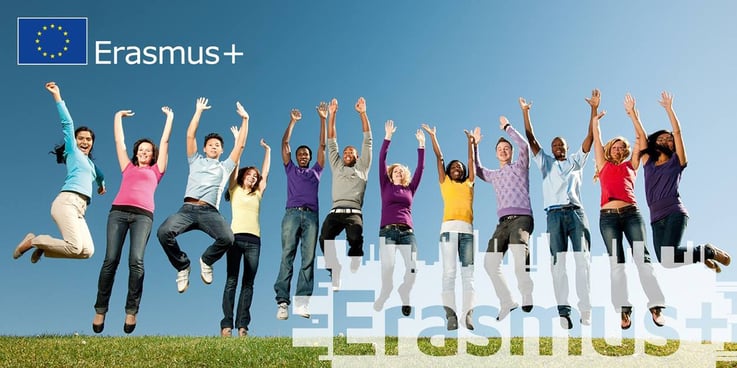Erasmus Plus
Discover more about the European program


Erasmus+ is the European Union programme dedicated to education, training, youth and sport, designed for the period 2021-2027. Building on the success of previous editions, Erasmus+ continues to be a key pillar for promoting the personal and professional development of European citizens and beyond, emphasizing the importance of lifelong learning, transnational cooperation and international mobility. The programme is a powerful tool to foster social inclusion, address global challenges such as climate change and digitalisation, and strengthen the sense of belonging to Europe.
The programme has as its general objective to support, through lifelong learning, the educational, professional and personal development of individuals, thus contributing to sustainable growth, the creation of quality jobs and innovation. Specific objectives include:
-Promote learning mobility between individuals and groups, fostering cooperation and inclusion.
-Support non-formal and informal learning, stimulating creativity and active participation of young people.
-Promote the mobility of sports staff, highlighting the role of sport as a means of education and inclusion.
Erasmus+ focuses on four main priorities, which reflect the fundamental values of the European Union:
-Inclusion and Diversity: Ensure that all activities of the programme are accessible and inclusive. This means supporting young people with fewer opportunities, breaking down barriers related to disabilities, economic problems or cultural barriers. Activities are designed to be flexible and adaptable, encouraging participation by all.
-Environmental Sustainability: Funded projects must incorporate sustainable practices, stimulating participants to reflect on environmental issues and find local and global solutions for a greener future.
-Digital Transformation: Erasmus+ supports the development of digital skills through innovative tools and virtual learning platforms, while promoting a responsible and critical use of technologies.
-Civic Participation: Strengthening European identity through projects that stimulate social awareness, active participation and intercultural dialogue.
The Erasmus+ youth sector is a unique opportunity for young people aged 13 to 30, as well as youth workers. It offers a wide range of activities that combine non-formal learning, transnational cooperation and personal development.
Youth Exchanges
Youth exchanges allow groups of young people from different countries to meet to explore themes of common interest, such as sustainability, social inclusion, or digital innovation. Using non-formal educational methods, participants improve key skills such as critical thinking, leadership and teamwork. Each project is an opportunity to experience cultural diversity and develop greater intercultural awareness.
Mobility for Youth Workers
This action targets trainers, educators and youth workers, offering training opportunities, networking and exchange of good practices at European level. The main objectives include improving professional skills, introducing innovative approaches in youth work and creating transnational networks of cooperation.
Youth Participation Activities
These activities aim to actively involve young people in democratic life, providing them with tools to express their opinions and contribute to decisions that affect their future. Projects can address issues such as human rights, social inclusion or climate change, promoting civic awareness and dialogue between young people and policy makers.
The programme promotes the Youthpass, a tool that allows participants to document the skills acquired during the activities. This supports job placement and formal and informal recognition of skills at European level.
Erasmus+ is not just a mobility programme; it is a catalyst for change. It helps to shape a generation of aware, responsible and inclusive European citizens. Participants, through their experiences, not only acquire personal and professional skills, but become ambassadors of the European values of tolerance, solidarity and sustainability.
Erasmus+ represents a unique opportunity to build a more cohesive and dynamic society. Through its focus on education, training and youth, the programme fosters individual and collective growth, contributing to a more united, inclusive Europe, ready to face the challenges of the future.


